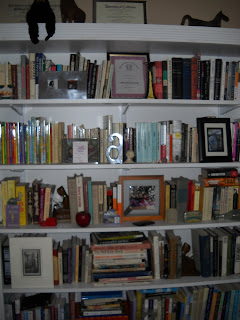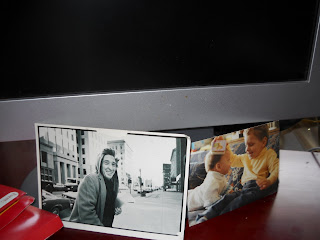Tomorrow my mother is going to be ninety.
When she was born, Woodrow Wilson was president.
My mother was born in Cleveland, Ohio, the youngest of three children born to Hungarian immigrants who never learned English. When she was five, both of her parents died within six weeks of each other, of unrelated causes.
My mother has very few memories of her early childhood. She remembers calling her parents “Mama dear” and “Papa dear.” She remembers a doctor coming to the apartment to try to alleviate her mother’s asthma. She remembers holding a kitten and thinking, This is more happiness than I can bear.
When her parents died, her older sister Elsie was sent to live with Aunt Ella and Uncle Ernie. (I met Ella and Ernie once, when I was six. They were very old. Uncle Ernie pinched my cheeks until I cried. I thought, What kind of old man does this? My mother said he’d been doing it for years.) Her beloved brother Milton was sent to Bellefaire, a Jewish orphanage in Cleveland. My mother was sent to Michigan to live with an uncle and his five sons. All she remembers is hating it there and wanting to be wherever Milton was.
Eventually, someone took pity on her and she, too, was admitted to Bellefaire, where she spent the rest of her childhood. She still says it was the best time of her life. I have seen pictures of Bellefaire (which is now Bellefaire Jewish Children's Bureau , a non-profit agency providing an array of child welfare, behavioral health, and allied health services without regard to race, religion, sex, or national origin). If you had to be an orphan, Bellefaire was the place to be one.
Automobiles were still exotic when my mother was a little girl. She remembers that Bellefaire participated in something called Automobile Day. The richest men of Cleveland volunteered to drive the orphans to Euclid Beach, a local amusement park on the shores of Lake Erie. For many of the kids, the car ride to the park was more exciting than the park itself.
That, more than almost anything, underscores for me how long my mother has been alive.
Next weekend, we will celebrate her birthday with a family dinner in Monterey. I will drive nearly one hundred miles to pick her up, then another hundred to bring her to my house. She won’t think anything of it.
Ninety years isn’t long, in the grand scheme of things. But it is a staggering amount of time for one person to live.
My mother started life facing almost unimaginable challenges. The fact that she is still here—still healthy, still raging against George Bush, still nagging me to turn the heat down—is a triumph of heart and will and a spirit I can only hope to have inherited. I am so proud of her and so glad she is still with me.

















